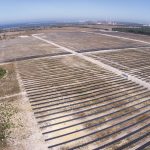New government gives green light for ministerial move to CGD premises
Portugal’s Democratic Alliance (AD), which won the general election a week ago on Sunday, says it does not oppose the transfer of several government departments and ministries to the premises rented State-owned bank Caixa Geral de Depósitos on Lisbon’s Avenue João XXI.
In turn, the bank is awaiting its new premises in the city’s Parque das Nações to be readied for a move in 2026 that will cost €180 million.
Presenting its 2023 results, the public bank referred to “some consensus” on the savings that would be made by having government departments and ministries concentrated under one roof” said CGD CEO Paulo Macedo.
The relocation of all the ministries and some public administration bodies began to be negotiated in 2021, and foresees freeing up some 90,000 m2 of the building where 2,500 staff of the bank’s central services currently work.
From that area, around 3,000 m2 are occupied by public body offices. Valued at around €360 million, the CGD headquarters was handed over to the State in dividends.
The relocation and sale of the building will bring the government treasury in a net amount that is less than the €360 million value price given that at least €40 million will have to be spent on adaptation works already validated by the public spending watchdog Tribunal de Contas.
Symbolically, the CGD HQ hosted the last Council of Ministers meeting of the outgoing PS government led by António Costa and included the presence of the president of the Republic, Marcelo Rebelo de Sousa.
On the agenda are two important topics for discussion: the latest state of play on the execution of the Resilience and Recovery programme (RRP) and a discussion on a government bill that is reforming part of the public administration under the terms of the Portugal RRP agreement with Brussels.
This relocation of government offices under one roof to save money and resources is part of that public administration cost-cutting reform agreed with the EC in return for billions of ‘bazooka’ funds, but had temporarily been shelved when the government fell in December and snap elections were called for March 10.










